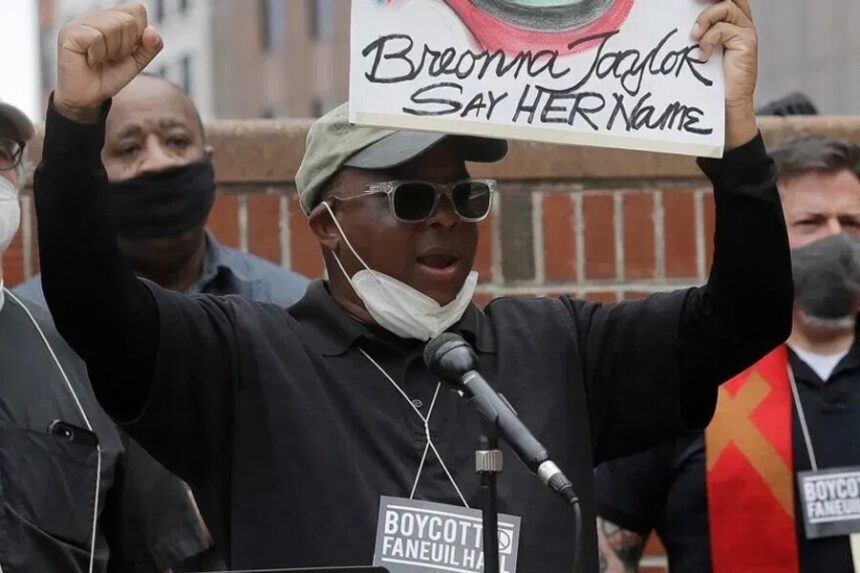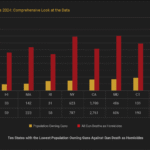In a city as historically rich and complex as Boston, where the echoes of the past are felt in the cobblestone streets and the grandeur of its institutions, a profound conversation about reparations and racial justice is unfolding. At the forefront of this discussion is the Boston Task Force on Reparations, a group commissioned by a 2022 Boston City Council ordinance, which has boldly called upon the city’s “White churches” to acknowledge their historical complicity in systemic racism and contribute to a comprehensive reparations program.
This initiative, seeking an unprecedented $15 billion to address racial inequities rooted in the trans-Atlantic slave trade, represents a significant moment in Boston’s ongoing reckoning with its past.
On a Saturday that saw rain transform planned outdoor gatherings into more intimate indoor assemblies, clergy members of diverse racial backgrounds convened in the basement of the Resurrection Lutheran Church in Roxbury. This gathering, though altered by weather, symbolized a united front of Black and White faith leaders coming together to address a wound that has marred the soul of the city and the nation for centuries.
The Boston Task Force on Reparations made up of 10 distinguished members, including representation from the youth, is not just a ceremonial body. It embodies the city’s earnest attempt to confront the legacies of slavery and discrimination that have contributed to persistent racial disparities in wealth, education, and opportunity. At the heart of their agenda is a call for reparations, a term that encompasses a broad range of actions aimed at repairing the damage inflicted by historical injustices.
Reverend Kevin Peterson, a vocal advocate for this cause and a proponent of renaming landmarks with ties to slavery, articulates a vision where reparations extend beyond monetary compensation. Peterson, with a history of activism that intersects with faith, urges White churches in Boston to lead by example.
These institutions, endowed with significant resources and moral authority, are positioned uniquely to contribute to healing and restitution. The Task Force envisions a reparations strategy that includes direct financial support to the Black community, investments in educational and anti-crime initiatives, and the creation of affordable housing and new financial institutions designed to empower Black Bostonians.
The response to the Task Force’s call has already begun to materialize, with sixteen religious leaders signing a letter in support of reparations. This letter, targeting several of the city’s oldest churches—Arlington Street Church, Trinity Church, Old South Church in Back Bay, and King’s Chapel in downtown Boston—highlights the critical role these congregations can play in the reparations process. Each of these churches, with its substantial wealth and historical significance, is asked to reflect on their pasts and commit to a future where they actively work towards rectifying the racial injustices that their predecessors may have been complicit in or benefited from.
During a press conference, Reverend John E. Gibbons of Arlington Street Church acknowledged the ongoing internal conversations within these churches about their historical connections to slavery and their current responsibilities. However, he emphasized the need for action, expressing a shared desire among faith leaders to move beyond dialogue to tangible steps toward reparations.
Meanwhile, Reverend Joy Fallon of King’s Chapel highlighted efforts to memorialize individuals enslaved by members of their congregation and establish a fund for social justice and reconciliation. This initiative, part of a broader effort to confront the church’s historical ties to slavery, signals a commitment to not just acknowledge the past but to actively participate in the healing process.
The Task Force’s proposal for a $15 billion reparations fund is ambitious, aiming to address the multifaceted impact of slavery and systemic racism on Boston’s Black community. This figure is more than three times the city’s annual budget for fiscal year 2024, underscoring the magnitude of the commitment being made to the city and its institutions.
The proposed distribution of funds includes $5 billion in direct cash payments to Black residents, $5 billion towards the establishment of new financial institutions, and $5 billion dedicated to closing the racial disparities in education and crime prevention. This comprehensive approach seeks not only to compensate for historical injustices but also to lay the groundwork for a more equitable and just future.
The push for reparations in Boston is occurring against a backdrop of a national reevaluation of racial justice and the legacy of slavery. Cities and institutions across the United States are grappling with similar questions about how to address their roles in perpetuating racial inequities and what reparations could look like in the 21st century. Boston’s efforts, given its historical significance and the active engagement of its faith communities, could serve as a model for how cities can confront their pasts and work towards meaningful reparations.
Danielle Williams, the director of Prophetic Resistance Boston, eloquently connected the call for reparations to the Christian tradition of service and humility, invoking the image of Jesus washing the feet of his disciples.
For Williams, whose ancestral history traces back to the horrors of slavery, the act of reparations is a powerful gesture of acknowledgment, restitution, and ultimately, reconciliation. It is a call for those who seek justice to actively participate in healing the wounds of the past and forging a more just society.
In a city as historically rich and complex as Boston, where the echoes of the past are felt in the cobblestone streets and the grandeur of its institutions, a profound conversation about reparations and racial justice is unfolding. At the forefront of this discussion is the Boston Task Force on Reparations, a group commissioned by a 2022 Boston City Council ordinance, which has boldly called upon the city’s “White churches” to acknowledge their historical complicity in systemic racism and contribute to a comprehensive reparations program.
This initiative, seeking an unprecedented $15 billion to address racial inequities rooted in the trans-Atlantic slave trade, represents a significant moment in Boston’s ongoing reckoning with its past.
On a Saturday that saw rain transform planned outdoor gatherings into more intimate indoor assemblies, clergy members of diverse racial backgrounds convened in the basement of the Resurrection Lutheran Church in Roxbury. This gathering, though altered by weather, symbolized a united front of Black and White faith leaders coming together to address a wound that has marred the soul of the city and the nation for centuries.
The Boston Task Force on Reparations made up of 10 distinguished members, including representation from the youth, is not just a ceremonial body. It embodies the city’s earnest attempt to confront the legacies of slavery and discrimination that have contributed to persistent racial disparities in wealth, education, and opportunity. At the heart of their agenda is a call for reparations, a term that encompasses a broad range of actions aimed at repairing the damage inflicted by historical injustices.
Reverend Kevin Peterson, a vocal advocate for this cause and a proponent of renaming landmarks with ties to slavery, articulates a vision where reparations extend beyond monetary compensation. Peterson, with a history of activism that intersects with faith, urges White churches in Boston to lead by example.
These institutions, endowed with significant resources and moral authority, are positioned uniquely to contribute to healing and restitution. The Task Force envisions a reparations strategy that includes direct financial support to the Black community, investments in educational and anti-crime initiatives, and the creation of affordable housing and new financial institutions designed to empower Black Bostonians.
The response to the Task Force’s call has already begun to materialize, with sixteen religious leaders signing a letter in support of reparations. This letter, targeting several of the city’s oldest churches—Arlington Street Church, Trinity Church, Old South Church in Back Bay, and King’s Chapel in downtown Boston—highlights the critical role these congregations can play in the reparations process. Each of these churches, with its substantial wealth and historical significance, is asked to reflect on their pasts and commit to a future where they actively work towards rectifying the racial injustices that their predecessors may have been complicit in or benefited from.
During a press conference, Reverend John E. Gibbons of Arlington Street Church acknowledged the ongoing internal conversations within these churches about their historical connections to slavery and their current responsibilities. However, he emphasized the need for action, expressing a shared desire among faith leaders to move beyond dialogue to tangible steps toward reparations.
Meanwhile, Reverend Joy Fallon of King’s Chapel highlighted efforts to memorialize individuals enslaved by members of their congregation and establish a fund for social justice and reconciliation. This initiative, part of a broader effort to confront the church’s historical ties to slavery, signals a commitment to not just acknowledge the past but to actively participate in the healing process.
The Task Force’s proposal for a $15 billion reparations fund is ambitious, aiming to address the multifaceted impact of slavery and systemic racism on Boston’s Black community. This figure is more than three times the city’s annual budget for fiscal year 2024, underscoring the magnitude of the commitment being made to the city and its institutions.
The proposed distribution of funds includes $5 billion in direct cash payments to Black residents, $5 billion towards the establishment of new financial institutions, and $5 billion dedicated to closing the racial disparities in education and crime prevention. This comprehensive approach seeks not only to compensate for historical injustices but also to lay the groundwork for a more equitable and just future.
The push for reparations in Boston is occurring against a backdrop of a national reevaluation of racial justice and the legacy of slavery. Cities and institutions across the United States are grappling with similar questions about how to address their roles in perpetuating racial inequities and what reparations could look like in the 21st century. Boston’s efforts, given its historical significance and the active engagement of its faith communities, could serve as a model for how cities can confront their pasts and work towards meaningful reparations.
Danielle Williams, the director of Prophetic Resistance Boston, eloquently connected the call for reparations to the Christian tradition of service and humility, invoking the image of Jesus washing the feet of his disciples.
For Williams, whose ancestral history traces back to the horrors of slavery, the act of reparations is a powerful gesture of acknowledgment, restitution, and ultimately, reconciliation. It is a call for those who seek justice to actively participate in healing the wounds of the past and forging a more just society.




